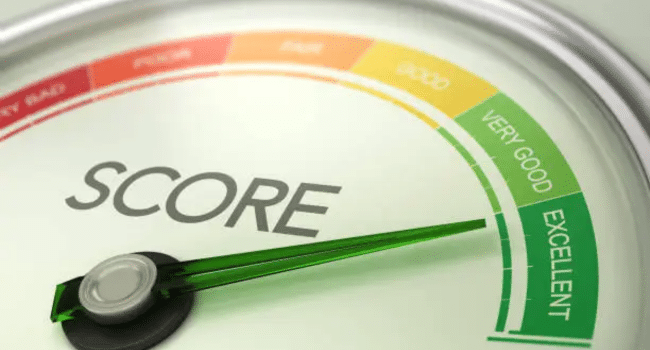Table of Contents
The three-digit credit score has the potential to influence your creditworthiness. In simple terms, the credit score is a numerical representation of the creditworthiness of an individual. It highlights the financial health and the repaying capacity of the borrower. Banks and other lenders emphasize credit score as it helps in identifying whether or not the borrower would be able to repay the loans.
Interest rates, on the other hand, refer to the percentage charged by lenders for borrowing money, and borrowing costs encompass the total expenses associated with taking out a loan, including both the principal amount and the interest paid over time. Understanding the intricate relationship between these factors is crucial for making informed financial decisions.
However, there are many instances where the bank or any financial institution might reject your loan applications. Hence, understanding the intricate relationship between interest rate, credit score, and borrowing cost plays a pivotal role. In the next segment of the block, we are going to highlight these aspects.
Connection between Your Credit Score, Interest Rate, and Borrowing Costs
Higher Credit Score – Lower Interest Rate – Lower Borrowing Cost
A higher credit score showcases that an individual has good financial health. They are disciplined when it comes to repaying the EMI. In such cases, one may get leverage on the interest rate, which eventually lowers the borrowing cost.
A higher credit score reflects less risky borrowers since they have demonstrated a history of responsible financial behavior. Moreover, reduced risk encourages the lenders to offer lower interest rates so as to incentivize the borrower.
Lower Credit Score – Higher Interest Rate – Higher Borrowing Cost
In the case of a low credit score, the interest rate that the borrower might have to pay is high. Since a lower credit score showcases irresponsible financial behavior, lenders are usually apprehensive about such borrowers. They view individuals with low credit scores to be a defaulter on loans and impose a higher interest rate. As a result, the borrower with a lower credit score and a higher interest rate contributes to elevated borrowing costs.
Tips to Improve Credit Score for Lower Borrowing Costs
It is always advisable that one should have a glimpse through their credit score and credit history to understand their financial health before applying for a loan. There are many platforms on which you can do a free credit score check. If, however, you notice that you have a lower credit score, there are ways to improve it. Here are some actionable tips that will help you in the same:
Pay Your Bills on Time
One of the easiest ways to improve your credit score is by paying the bills on time. Showcasing consistent behaviour when it comes to bill payments before the due dates helps in positively improving the credit score.
Lower Your Credit Utilization Ratio
Another important factor that one must take into account is the credit utilization ratio. A higher utilization ratio may reflect negatively on the credit score. Hence, it is advisable to use the credit card responsibly. The ideal credit utilization ratio should be 30% or less.
Correct Errors on Your Credit Report
There can be circumstances where the credit report has flaws or errors. Hence, you should assess the credit report thoroughly before applying for a loan. In case you notice any disputes or inaccuracies, it’s important to focus on rectifying it. This error can also negatively impact the credit score.
Avoid Applying for Credit Unless Necessary
One should be wise when applying for credit. Regular application may reflect negatively on the credit score. Hence, you must limit the applications.
Pay Off Debt
The easiest way to move out of your credit score is to pay off all the debts. This helps in improving the credit utilization ratio and also demonstrates your ability to manage your debt responsibly.
Use Credit Mix
You can also opt for a diverse credit mix that includes credit cards and small instalment loans. It can have a positive impact on your credit score. When you showcase your ability to manage different things positively, it also starts reflecting positively on your credit score.
Conclusion
The above blog discusses the key aspects of credit score and how it impacts the interest rate and the borrowing cost. Using the tips mentioned here wisely can help you maintain a higher credit score.
Employing responsible financial habits such as timely bill payments, prudent credit utilization, and addressing credit report errors can enhance your credit score, enabling you to secure more favorable borrowing terms. Ultimately, the effort invested in improving your credit score can yield substantial savings and pave the way for a stronger financial future.
Read more on KulFiy
7 Smart Ways to Plan Your Personal Loan EMI Repayment Better
6 Personal Loan Buying Tips You Need to Know in 2021
7 Smart Ways to Plan Your Personal Loan EMI Repayment Better
